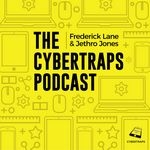Share this news on:
Previous
23 Dec 2021
19 min read
[C4EMD] Chapter Three
Next
29 Dec 2021
16 min read





![[C4EMD] Chapter Three](/content/images/size/w1170/2021/12/2017_Cybertraps-for-Expecting-Moms-and-Dads-1.jpg)
![[C4EMD] Chapter Four](/content/images/size/w1170/2021/12/Cybertraps-for-Expecting-Moms---Dads.png)










Leave a comment